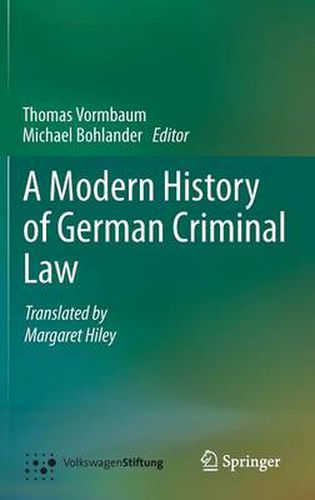Readings Newsletter
Become a Readings Member to make your shopping experience even easier.
Sign in or sign up for free!
You’re not far away from qualifying for FREE standard shipping within Australia
You’ve qualified for FREE standard shipping within Australia
The cart is loading…






This title is printed to order. This book may have been self-published. If so, we cannot guarantee the quality of the content. In the main most books will have gone through the editing process however some may not. We therefore suggest that you be aware of this before ordering this book. If in doubt check either the author or publisher’s details as we are unable to accept any returns unless they are faulty. Please contact us if you have any questions.
Increasingly, international governmental networks and organisations make it necessary to master the legal principles of other jurisdictions. Since the advent of international criminal tribunals this need has fully reached criminal law. A large part of their work is based on comparative research. The legal systems which contribute most to this systemic discussion are common law and civil law, sometimes called continental law. So far this dialogue appears to have been dominated by the former. While there are many reasons for this, one stands out very clearly: Language. English has become the lingua franca of international legal research. The present book addresses this issue. Thomas Vormbaum is one of the foremost German legal historians and the book’s original has become a cornerstone of research into the history of German criminal law beyond doctrinal expositions; it allows a look at the system’s genesis, its ideological, political and cultural roots. In the field of comparative research, it is of the utmost importance to have an understanding of the law’s provenance, in other words its historical DNA.
$9.00 standard shipping within Australia
FREE standard shipping within Australia for orders over $100.00
Express & International shipping calculated at checkout
This title is printed to order. This book may have been self-published. If so, we cannot guarantee the quality of the content. In the main most books will have gone through the editing process however some may not. We therefore suggest that you be aware of this before ordering this book. If in doubt check either the author or publisher’s details as we are unable to accept any returns unless they are faulty. Please contact us if you have any questions.
Increasingly, international governmental networks and organisations make it necessary to master the legal principles of other jurisdictions. Since the advent of international criminal tribunals this need has fully reached criminal law. A large part of their work is based on comparative research. The legal systems which contribute most to this systemic discussion are common law and civil law, sometimes called continental law. So far this dialogue appears to have been dominated by the former. While there are many reasons for this, one stands out very clearly: Language. English has become the lingua franca of international legal research. The present book addresses this issue. Thomas Vormbaum is one of the foremost German legal historians and the book’s original has become a cornerstone of research into the history of German criminal law beyond doctrinal expositions; it allows a look at the system’s genesis, its ideological, political and cultural roots. In the field of comparative research, it is of the utmost importance to have an understanding of the law’s provenance, in other words its historical DNA.